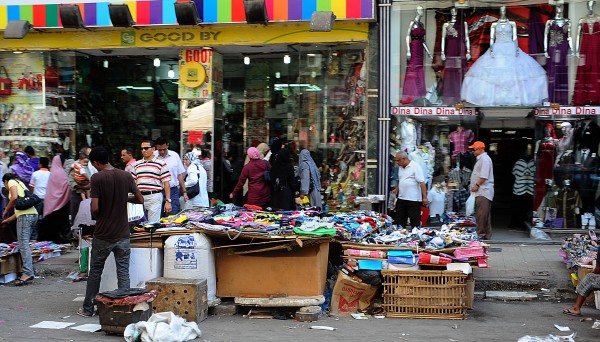As part of the government’s wider “Order and Cleanliness Campaign”, Cairo’s Governor Galal Saeed has announced that neighbourhood heads – appointed by governors – will be given a series of law enforcement powers to help “manage” their designated areas.
The move means that heads of neighbourhoods will be able to stop, search, arrest and detain those suspected of committing a “violation,” thereby avoiding the process of going through police officers or law enforcement. However, should the suspect be in a private home, a warrant must be issued by law enforcement in order for them to be arrested.
According to governorate officials speaking to local media, the move is an attempt to avoid bureaucracy, creating a more efficient process of dealing with the – as yet undefined – “violations.”
However, for others, this is a subject of grave concern. Many see this reform as part of a worrying trend of the Egyptian state expanding arrest powers beyond traditional groups. Indeed, examples of other personnel who have previously been given similar arresting powers include university guards and select individuals from the Ministry of Endowments.
The “Order and Cleanliness Campaign”, of which this latest move is a part, is an initiative by Egyptian Prime Minister Ibrahim Mehleb to “maintain order” on the streets of Cairo. As part of his promise to “not allow one vendor to busy the street”, Mehleb announced a policy earlier this month to remove street vendors from Central Cairo. He has assured vendors that they will be given new places to operate, however the details of this have not yet been confirmed.
The centre of the city has become a hotspot for independent vendors – many of whom have few alternative ways of making money – who took advantage of the lack of security following the 2011 revolution. So far, the campaign has been highly effective in reducing congestion and chaos in these typically busy areas.
However, the campaign has caused some concern with regards to its tactics. In June, a mass evacuation of unauthorised street vendors in downtown Cairo also took place, with authorities entering Ramses Square with bulldozers in order to remove the sellers.
After negotiating with the governer, the Ministry of Interior and the Ministry of Urban Development, the vendors agreed to move to Ahmed Helmy, a car park near the Ramses Square train station. However, this still attracted complaints, as the area could only accommodate 550 of the 1,250 street vendors being relocated, and many vendors argued that the lack of people in these more remote areas made it difficult for them to make money. It is predicted that there are between five and six million street vendors in Egypt, and three million of these are in Cairo.







Comments (4)
What about Alexandria, it is a horrifying trash heap except touristy areas (bibliotheca, famous hotels .. etc.)
Walk outside Alexandria’s “misr” train station and look straight first at the horror, PILES AND PILES of trash (mountain of trash) and flies and chaotic uncivilized marketplaces. Even the corniche smells terrible and the water is full of trash, and people sit on the wall and throw their trash into the sea.
When is the Governor of 6th October City going to get off his ass and do his job and clean it up and remove the vendors all over the highways obstructing traffic and throwing their trash everywhere? All the trash and crap and vendors outside Fardous and Ashgar and Dreamland at the end of the ring road and U Turns!!! The governor of 6th October City doesn’t seem to do anything at all !!!